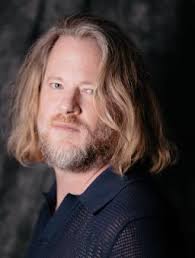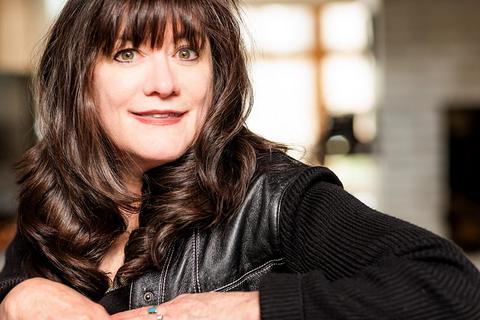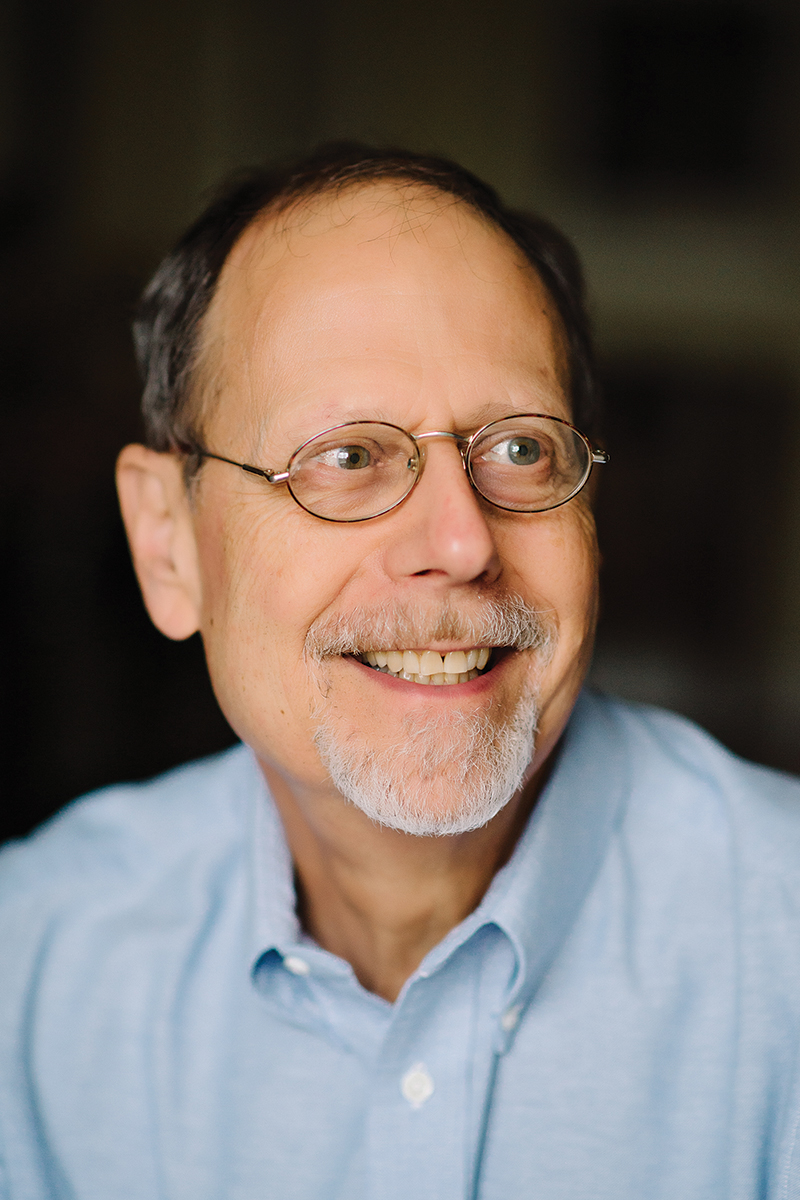
|
April 2024 | Volume 19 | Number 2
|

FROM THE EDITOR
The first Women Writing Women’s Lives Dorothy O. Helly Works in Progress Lecture since 2022 was held last month at the CUNY Graduate Center, and BIO member Sydney Ladensohn Stern delivered it. See the recap of the event below, in which Stern discusses writing a biography of Irene Selznick and shares applicable tips for biographers at work.
As we eagerly await the 2024 BIO Conference, The Biographer’s Craft has gathered some exciting panel previews to add to the anticipation.
Additionally, our member interview this month is with Aidan Levy, who provided insight into compiling backmatter, backing up hard drives, and getting inspired to play the saxophone again after writing his biography of Sonny Rollins.
The BIO Insider is still accepting member news and notes for the May edition! Please submit them here.
Enjoy!
Holly
|
|
|
|
CRAFT TALK
Women Writing Women’s Lives Dorothy O. Helly Lecture: Sydney Ladensohn Stern Discusses Irene Selznick
On March 18, Sydney Ladensohn Stern delivered the 2024 Dorothy O. Helly Works in Progress Lecture presented by the Women Writing Women’s Lives Seminar and sponsored by the City University of New York Graduate Center. Stern discussed her current project, a biography of Irene Mayer Selznick, a member of Hollywood royalty and a Broadway producer in her own right, most famously of A Streetcar Named Desire and Bell, Book and Candle.
Stern said the first major challenge of writing this biography is figuring out how much exposition to provide. She has wrestled with questions like: “How much Hollywood history to give people? How much theater history? How much British theater history?” She contrasted the process of trying to understand the audience for this biography with her former work as an editor at Fortune, where the audience for writing was more clearly defined.
However, the lack of certainty about the target audience was perhaps a boon. Early in the process, Stern realized that her entire conception of the book needed to change, and she felt free to make adjustments in service of the story. She said, “My original idea was that [the biography] was going to be a star-studded story of . . . a Zelig-like character. She’d been everywhere, knew everyone.” As the daughter of M-G-M film boss of Louis B. Mayer, she went to the White House and the Oscars. And A-listers like Cary Grant, Rex Harrison, and Katherine Hepburn came to her father’s palatial estate. Later, as the wife of producer David O. Selznick, the trend continued. However, “somewhere along the way” in the research process, Stern revealed, “my priorities shifted . . . it wasn’t a Zelig story at all. The character became more important than the plot . . . I realized that what is really important here is making this character come to life. That became my pride. That has become a primary goal, and it’s a challenge in a work of nonfiction.”
The other great challenge, she said, is selecting a structure for a biography. She elaborated, “For this book, I feel the main structural issue I have is that the first two parts are ‘Irene as daughter to the interesting, powerful man’ and ‘Irene as wife to the interesting, powerful man.’” It’s in the metaphorical Third Act of Irene’s life, which contains her divorce from Selznick and her career as a Broadway producer, that she assumes center stage. Stern discussed using flashbacks to keep her subject centered in the other two sections of the book but said, “The chronology really is important, and it’s important to see her being formed.” Stern said that her hope is while shaping and revising the writing, “Irene will emerge.”
Stern said that Selznick left behind troves of memos in her archives that were related to her various Broadway shows. These have helped her understand Selznick’s frame of mind and how she conducted her work. While Stern said these will help reveal Selznick’s true nature, they also pose a problem. She said she comes across “really interesting and very wise” writing from Irene, but “I just don’t think I want to quote big blocks, so I might have to create scenes” to avoid publishing long quotes.
That is one small aspect of what Stern described as the “joy and terror of writing a book”: the many choices that are the biographer’s alone to make. In closing, she said: “I always say biography is as much about the biographer as it is about our subjects. So, we write our books, and we send them out into the world, and we make ourselves vulnerable. And it’s exhilarating. I sometimes wonder, am I going to be wrong? Did I make a major mistake? But who’s to judge at this point? It’s my book. It’s exhilarating. And I found it well worth the risk.”
Sydney Ladensohn Stern is the author of The Brothers Mankiewicz: Hope, Heartbreak, and Hollywood Classics (University Press of Mississippi, 2019) and Gloria Steinem: Her Passions, Politics, and Mystiques (Birch Lane Press, 1997). Learn more about her here.
|
|
|
|
CONFERENCE PREVIEW
Editor’s Note: With the 2024 BIO Conference just weeks away, The Biographer’s Craft reached out to some of this year’s moderators to get a sense of how they are preparing for their panels and what attendees can expect. Their insights are below.
Nicholas Boggs, moderator of Writing LGBTQ+ Lives
 Nicholas Boggs
Nicholas Boggs
This panel, on the Craft track, will feature Cynthia Carr, author of Candy Darling: Dreamer, Icon, Superstar (Farrar, Straus and Giroux, 2024); Will Hermes, author of Lou Reed: The King of New York (Farrar, Straus and Giroux, 2023); and Jessica Max Stein, author of Funny Boy: The Richard Hunt Biography (Rutgers University Press).
“I’m hoping we’ll be able to discuss how some of the opportunities and challenges posed by the genre of biography in general are amplified and/or unfold differently in a queer context,” Boggs said. He provided the example of how “the specters of anachronism and presentism hover over all biographies” but manifest in unique ways for queer biographies. “Terms like ‘cisgender’ and ‘nonbinary’ did not exist [around the time of Stonewall], and even ‘queer’ meant something different,” he said.
Boggs said, “All three subjects are not only legible under the LGBTQ+ banner, but they are also all performers. So, I’ll be interested to hear these three writers talk about the different ways that impacted their research and writing process. I mean, Muppets, rock stars, and Warhol Superstars, what more can one panel really ask for?”
Holly George-Warren, moderator of Writing an Artist’s Life
 Holly George-Warren
Holly George-Warren
“Attendees will learn if there are specific qualifications necessary to write a biography on subjects who work in the arts, with our discussion ranging from playwright August Wilson to hip-hop producer J Dilla to artist Keith Haring to Rock & Roll Hall of Famer Janis Joplin. We’ll discuss our various approaches when writing such biographies and how our professional lives led us to our subjects,” said George-Warren of her panel.
George-Warren, the former director of Rolling Stone’s book division, will be in conversation with panelists Dan Charnas, author of Dilla Time: The Life and Afterlife of J Dilla, The Hip-Hop Producer Who Reinvented Rhythm (Swift Press, 2022); Brad Gooch, author of Radiant: The Life and Line of Keith Haring (Harper, 2024); and Patti Hartigan, author of August Wilson: A Life (Simon & Schuster, 2023).
All three authors’ subjects are deceased, so George-Warren plans to ask each about their legacy and whether they met their subjects. George-Warren said the panelists will be asked to share their most surprising discoveries about them, and she believes the conversation will produce “a lot of behind-the-scenes intel from my fellow panelists.”
Marc Leepson, moderator of Mining Archives for Research Gold
 Marc Leepson
Marc Leepson
Leepson told The Biographer’s Craft that the panelists—Barrye Brown, the curator of the Manuscripts, Archives, and Rare Books Division at the Schomburg Center for Research in Black Culture; Nancy Kuhl, curator of poetry for the Yale Collection of American Literature, Beinecke Rare Book and Manuscript Library, Yale University; and Abigail Malangone, archivist at the John F. Kennedy Presidential Library—will “bring attendees up to date on every important aspect involved in navigating archival collections” and that “there will be time during the session and afterward for attendees to ask questions to help their own research.”
Having published ten nonfiction books, including Saving Monticello: The Levy Family’s Epic Quest to Rescue the House that Jefferson Built (Free Press, 2001), Leepson has spent decades researching in various archives and will use that experience to guide the conversation. He plans to ask the panelists to describe what’s new at their collections, what advice they would give to new and experienced biographers, what pitfalls to avoid, and to guide more focused conversation about “many other specific aspects involved in archival research.”
These panels and more will take place on Friday, May 17, during the 2024 BIO Conference in New York City. Learn more about the conference, the presenters, and the panels here.
|
|
|
|
MEMBER INTERVIEW
Six Questions with Aidan Levy
Who is your favorite biographer, or what is your favorite biography?
Robin D. G. Kelley’s Thelonious Monk: The Life and Times of an American Original (Free Press, 2009) is a watershed jazz biography, giving us a riveting portrait of the genius pianist and composer who co-created bebop, wrote some of the most enduring compositions, and was always irrepressibly himself. Monk was a mentor to Sonny Rollins, who thought of him as his “guru.” After I devoured this book, it convinced me that for a cultural figure like Rollins, who played such a pivotal role in shaping jazz history, a long biography was necessary to illuminate the complex relationship between the music and American culture, politics, and economics. As a historian, Dr. Kelley is truly beyond category, giving us wide-ranging works that are crucial to understanding American history, as well as global solidarity and decolonization movements: Hammer and Hoe, Freedom Dreams, and Africa Speaks, America Answers: Modern Jazz in Revolutionary Times. The Monk biography is beyond category as well. Of course, there are many other biographies and biographers who continue to inspire me.
What have been your most satisfying moments as a biographer?
I love immersing myself in the archive. It’s a portal to another world; opening each archival box gives the same thrill of discovery as unearthing a long-buried time capsule. You never know what you might find. For example, when I was doing research at the National Library of Norway in Oslo, I found a trove of letters Sonny Rollins wrote to Norwegian jazz presenter and journalist Randi Hultin over a period of decades. In one, written shortly after the death of Louis Armstrong, Rollins attests to the importance of Armstrong to his musical development and to American culture in general, during a time when this view was not so widely accepted. Time would prove him right, of course. There were many other moments of epiphany in the archive, like when I found the letter Charles Mingus sent to Rollins to convince him to return to public performance after his legendary two-year sabbatical on the Williamsburg Bridge. The archive brings history to life with an immediacy and intimacy that nothing else can equal, but I find for contemporary biographical subjects, interviews are equally important.
What have been your most frustrating moments?
I spent months completing the notes for the Rollins book, working ten to twelve hours a day exclusively on citation. There are thousands of entries, so many that the publisher had to put the notes section online. I felt it was important to document every source for future researchers and for anyone who wants to find out the origin of a surprising detail. It was a grueling process. Though I devised an effective system to keep track of references as I wrote without breaking the writing flow, I plan to use citation management software on future projects.
One research/marketing/attitudinal tip to share?
Back up your files! I had a near-catastrophic data loss when an external hard drive crashed out of nowhere, but successfully recovered everything. It was not cheap.
If you weren’t a biographer, what dream profession would you be in, and why?
I find that many biographers have, at one point, considered a career in their subjects’ field. I sometimes wonder what would have happened if I pursued music full-time. I have always loved writing and music, and I still play the saxophone, mostly baritone, but perhaps ironically, the Rollins book caused music to take a back seat to my writing projects. Listening to Sonny Rollins for thousands of hours made me keenly aware of just how impossibly high the standard is, yet it also inspired me to want to perform again. Or at least get back to a steady practice routine!
What genre, besides biography, do you read for pleasure, and who are some of your favorite writers?
I read a lot of fiction. I love Ann Petry’s The Street, the first novel by an African American woman to sell more than a million copies. Anything by Faulkner. A recent nonfiction book I read that reads like a novel is Bad Mexicans: Race, Empire, and Revolution in the Borderlands by Kelly Lytle Hernández. Currently on the nightstand: S. A. Cosby’s All the Sinners Bleed, James McBride’s The Heaven & Earth Grocery Store, Unmarriageable by Soniah Kamal, and Percival Everett’s James.
Aidan Levy is the author, most recently, of Saxophone Colossus: The Life and Music of Sonny Rollins (Hachette Books, 2022). Learn more about Levy here.
|
|
|
|
AMANUENSIS
“Did Jane Austen Like Music? And Why Should We Care?”
by Gillian Dooley
(originally published on Literary Hub)
Jane Austen’s surviving letters make intriguing reading. It is easy (and not uncommon) to lift passing remarks and quote them as evidence for all kinds of biographical details. It has been proposed, for example, that Austen disliked music. In May 1801, when Austen had just moved to Bath with her parents, she met Mrs. and Miss Holder, mother and daughter. She wrote to her sister Cassandra, “It is the fashion to think them both very detestable, but they are so civil, & their gowns look so white & so nice… that I cannot utterly abhor them, especially as Miss Holder owns that she has no taste for Music.”
Why does it matter whether or not she liked music? After all, Austen’s fame is not as a composer of music but as a composer of narratives. She was not even writing poetry, which is arguably more allied to musical forms than prose. Why is it important that she was an amateur musician who spent some of her leisure hours playing the piano and singing music much of which, unlike her own works, is almost completely forgotten today? It was just a hobby, after all, one might argue. She was not a professional musician, only an amateur.
However, for me the most important reason to explore the music in Austen’s life is the rhetorical link between writing and making music, especially given the musicality of her prose. Her knowledge of the theatre has been explored by several scholars, and it is no accident that many of the pieces of music in her collection had their origin in theatrical productions of some kind. But all music expresses and explores a range of emotions and subjective states of mind, sometimes beyond the capacity of written language, often adding depth and meaning to lyrics that are in themselves unremarkable. FULL ARTICLE
|
|
|
|
PHOTO FINISH
Barbara Lehman Smith, chair of BIO’s Development Committee, passed along these photos, saying: “More than 80 guests joined in the ‘Celebrating Kai Bird & Oppenheimer’ cocktail party on March 2 in New Haven as we rolled out the red carpet for the co-author whose book inspired the Academy Award-winning film. A huge thanks to Debby Applegate and Bruce Tulgan, whose company Rainmaker Thinking sponsored the event, for opening their beautiful home!”
In the image on the left: Rebecca Donner (left), Debby Applegate (center), and Allison Gilbert (right).
In the image on the right, from left to right: Francesca Wade, Lindsay Whalen, Kai Bird, and Abigail Santamaria.
|
|
|
|
BIO PODCAST
Larry Rohter and Cynthia Carr
Recently on the BIO Podcast, Kevin McGruder interviewed Larry Rohter, author of Into the Amazon: The Life of Cândido Rondon, Trailblazing Explorer, Scientist, Statesman, and Conservationist (W. W. Norton & Co., 2023), and Jennifer Skoog interviewed Cynthia Carr, author of Candy Darling: Dreamer, Icon, Superstar (Farrar, Straus and Giroux, 2024). New episodes are released every Friday here.
|
|
|
|
PITCH YOUR ARTICLE
Would you like to see your work featured in The Biographer’s Craft? Simply fill out this form to submit your pitch for consideration. Remember that features should be focused on the art and craft of biography, should not be promotional, and must be written by BIO members. Submit your pitch here.
|
|
|
|
KEEP YOUR INFO CURRENT
Making a move or just changed your email? We ask BIO members to keep their contact information up to date, so we and other members know where to find you. Update your information in the Member Area of the BIO website.
|
|
|
MEMBERSHIP UP FOR RENEWAL?
Please respond promptly to your membership renewal notice. As a nonprofit organization, BIO depends on members’ dues to fund our annual conference, the publication of this newsletter, and the other work we do to support biographers around the world.
|
|
|
|
|
|
BIO BOARD OF DIRECTORS
Steve Paul, President
Sarah S. Kilborne, Vice President
Marc Leepson, Treasurer
Kathleen Stone, Secretary
Michael Gately, ex officio
Kai Bird
Heather Clark
Natalie Dykstra
Gretchen Holbrook Gerzina
Carla Kaplan
Kitty Kelley
Susan Page
Tamara Payne
Ray A. Shepard
Barbara Lehman Smith
Kathleen Stone
Eric K. Washington
Sonja D. Williams
ADVISORY COUNCIL
Debby Applegate, Chair • Taylor Branch • A’Lelia Bundles • Robert Caro • Ron Chernow • Tim Duggan • John A. Farrell • Caroline Fraser • Irwin Gellman • Michael Holroyd • Peniel Joseph • Hermione Lee • David Levering Lewis • Andrew Lownie • Megan Marshall • John Matteson • Jon Meacham • Marion Meade • Candice Millard • James McGrath Morris • Andrew Morton • Arnold Rampersad • Hans Renders • Stacy Schiff • Gayfryd Steinberg • T. J. Stiles • Rachel Swarns • Will Swift • William Taubman • Claire Tomalin
|
|
|
THE BIOGRAPHER'S CRAFT
Editor
Jared Stearns
Associate Editor
Melanie R. Meadors
Consulting Editor
James McGrath Morris
Copy Editor
James Bradley
|
|
|
|